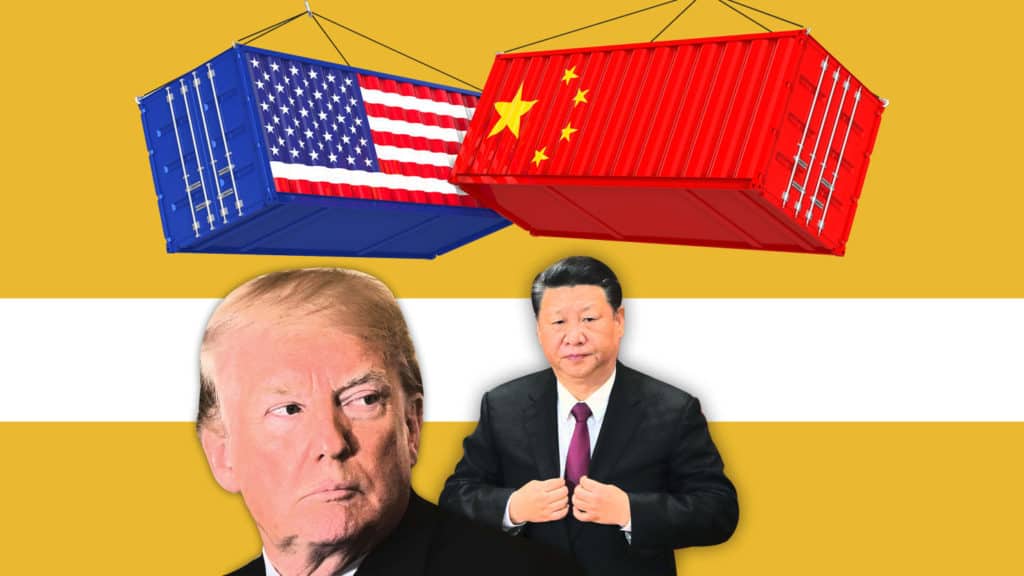
Report Finds China’s “Economic Aggression” Threatens United States
By Dan Murphy with Frank Spotorno
With all of the media’s attention on President Donald Trump, possible Russian collusion, or rehashing the 2016 election and Hillary Clinton’s email, a recent federal government report focused on the unfair trade practices, and the outright theft of intellectual property, occurring against our country from China.
There are major disagreements in this country over the recent imposition of tariffs on several countries in recent months from the Trump administration. Some have opposed placing tariffs on our allies, even though these same allies have been imposing unfair tariffs and trading practices on our products for years, specifically on steel, aluminum and milk.
Some believe that President Trump should have focused his attention on our biggest trade partner problem in the world-China. Last month, the White House Office of Trade and Manufacturing Policy issued a report, ‘How China’s Economic Aggression Threatens the Technologies and Intellectual Property of the United States and the World.’
The report outlines four ways in which China’s economic aggression;
I-Protect China’s Home Market from Imports and Competition: This category features high tariffs, non-tariff barriers, and other regulatory hurdles.
II- Expand China’s Share of Global Markets: Industrial policy tools include financial support to boost exports and the consolidation of State-Owned Enterprises into “national champions” that can compete with foreign companies in both the domestic and global markets. Chinese enterprises also benefit from preferential policies that lead to subsidized overcapacity in China’s domestic market, which then depresses world prices and pushes foreign rivals out of the global market.
III-Secure and Control Core Natural Resources Globally: China uses a predatory “debt trap” model of economic development and finance that proffers substantial financing to developing countries in exchange for an encumbrance on their natural resources and access to markets. These resources range from bauxite, copper, and nickel to rarer commodities such as beryllium, titanium, and rare earth minerals. This predatory model has been particularly effective in countries characterized by weak rule of law and authoritarian regimes.
IV– Dominate Traditional Manufacturing Industries: China has already achieved a leading position in many traditional manufacturing industries. As the European Chamber of Commerce has documented: “For a generation, China has been the factory of the world.” By 2015, China already accounted for 28 percent of global auto production, 41 percent of global ship production, more than 50 percent of global refrigerator production, more than 60 percent of global production of color TV sets, and more than 80 percent of global production of air conditioners and computers.
These are the traditional ways that China has attempted, and succeeded, in monopolizing many manufacturing industries, and expanded its share of the global market.
Another two ways that China is pursuing its economic aggression is by acquiring Key Technologies and Intellectual Property from Other Countries, Including the United States, and by capturing the Emerging High-Technology Industries That Will Drive Future Economic Growth
How does China achieve their goals of economic dominance? According to the report, through “State sponsored IP theft, through physical theft, cyber-enabled espionage and theft, evasion of U.S. export control laws, and counterfeiting and piracy;
The Office of the Director of National Intelligence notes: “Chinese actors are the world’s most active and persistent perpetrators of economic espionage.” Strategic sectors in emerging industries known to have been targeted include “electronics, telecommunications, robotics, data services, pharmaceuticals, mobile phone services, satellite communications and imagery, and business application software.”
China engages in widespread cyber-economic campaigns involving cyber-enabled espionage to infiltrate foreign companies for the purpose of stealing intellectual property, trade secrets, business processes, and technologies.28 Estimates of the cost of trade secret theft alone range “between $180 billion and $540 billion annually.”
As the U.S. Trade Representative (USTR) notes: For over a decade, the Chinese government has conducted and supported cyber intrusions into U.S. commercial networks targeting confidential business information held by U.S. firms. Through these cyber intrusions, China’s government has gained unauthorized access to a wide range of commercially valuable business information, including trade secrets, technical data, negotiating positions, and sensitive and proprietary internal communications.
These acts, policies, or practices by the Chinese government are killing American companies and jobs for decades, and increasingly since China was admitted into the World Trade Organization, WTO.
With a $500 Billion yearly trade deficit with China, President Trump should focus his attention on the trade abuses by China, and not our allies. Let us also remember that President Trump campaigned on this issue, which if resolved, can bring back some of the millions of manufacturing jobs lost over the past 20 years.
While it may be hard to find a need for a manufacturing job or factory here in Westchester, or even in New York City, take a ride across the Midwestern states that Trump won in 2016 that have thousands of empty factories and you will see that our fellow Americans need those jobs.
And yes, the USA can compete with any nation if we have Free Trade. But Free Trade doesn’t mean unfair trade, and illegal trade, and stealing out inventions, patents and technologies.
Let’s focus our attention on the worst violator of so called ‘free trade’ China, while we still have the economic power and might to make a difference.
Frank Spotorno is the co-founder of Bring our Jobs Home, an organization that focuses on highlighting the US companies that are building their products and hiring American workers.





